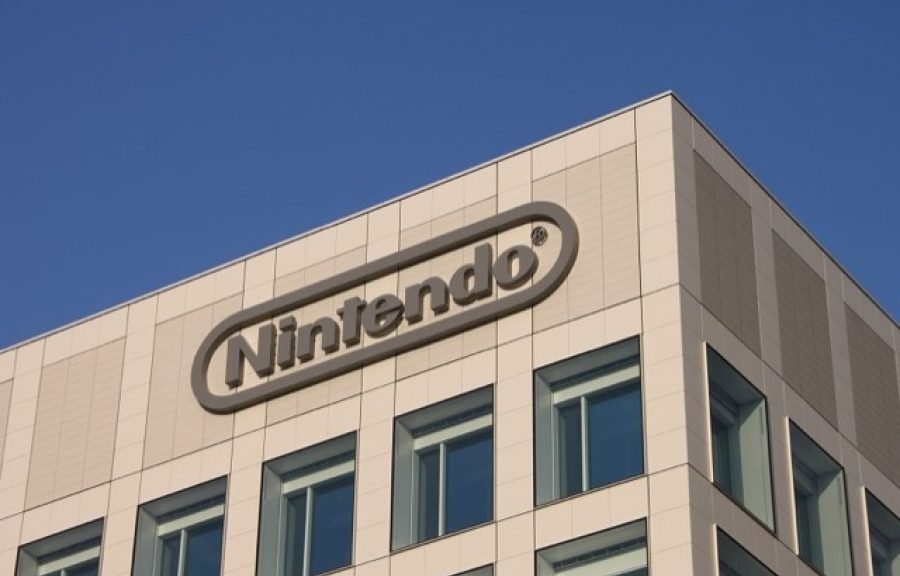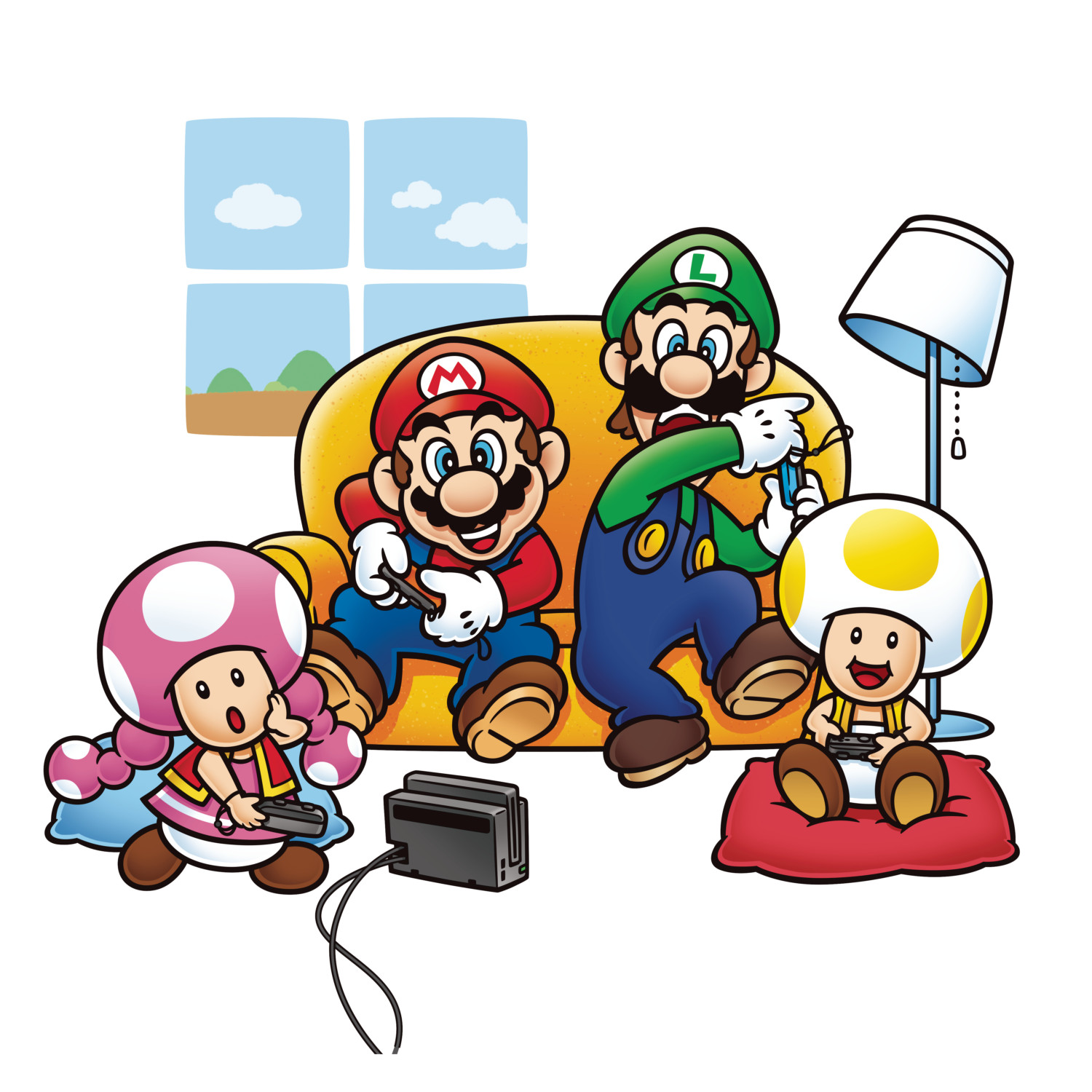
Here Are The Questions Asked During Nintendo’s 78th AGM
During the 78th Annual General Meeting of Shareholders, Nintendo was asked various questions from investors present at the meeting.
Questions asked include a request to find out the last titles former Nintendo Presidents were Executive Producers for, semiconductor prices, product synergy with the Super Nintendo World theme park, and much more. Check them out below (translated by CheeseMeister)..
Q1. I’d like to know what the last titles on which former Presidents Iwata and Kimishima are credited on as Executive Producer. (Not a question, but a request.) Most new young CEOs joined their companies after they were already big. It looks like Nintendo has loose connections with other companies, but as a conglomerate or such, how will you form more partnerships? I’d like President Furukawa to answer.
A1.
Kimishima: Nintendo will be 130 years old next year. Of that, it’s been in the hardware/software business for 30-plus years. Until then, it introduced many products like Hanafuda and toys. Nintendo has always tried many things in the entertainment business. It has taken on new organizational structures, and now Mr. Furukawa will become the new CEO. I believe that he’ll grow further developments.
Q2. The stock price is dropping sharply. What is Nintendo planning to do about it?
A2.
Kimishima: The stock price is determined in the market by the overall market conditions and supply and demand, as well as expectations and so on. There’s nothing we can say about whether the stock price is appropriate. While improving corporate value, we believe the market will give a valuation. I want to increase the stock price not for its own sake, but by focusing on the business. As such, I’d like to bring up E3. We have a video from E3. I’d like you to see what kind of passion and expectations there were for Nintendo’s business. Afterwards, Miyamoto and Takahashi will speak. (The video plays.)
Takahashi: Playing Smash Bros. was by appointment-only. Fortnite was also well-received. Tournaments for Smash Bros. and Splatoon 2 had excited audiences, and you could really feel like the whole world was cheering.
Kimishima: Momentum for the Switch is changing with E3. I believe this will be connected with valuation.
Q3. What are the performance goals you’d like to achieve for the fiscal year ending in March 2019? I’d also like to know the situation for the 1st quarter. Also, it’s being reported that the fall in stock price is due to sluggish Labo sales and unmet E3 expectations. How’s Labo?
A3.
Kimishima: Switch sales are expected to beat last fiscal year’s with 20 million units, along with 100 million software sales. It’s not an easy challenge. All of our employees are focused on it. This year’s software lineup is centered on the 2nd half.It’s difficult to compare the 1st quarter with the full year. For now, everything is going according to plan. As for Labo, it’s received praise since before its release as “Nintendo trying something new.” As it has a different style from other games up until now, its sales patterns are also different. The package is big and the demo is different. Kids rely on summer breaks, birthdays, and Christmases to get games. Parents also need to try it out. Software sales are normally front-loaded and then tail off. However, I believe Labo will sell when there’s an occasion for it. It might take some time. At E3, the number of attendees increased and they were very excited.
Q4. In regards to Fortnite which was announced at E3, there’s a story going around about how accounts that have played it on PlayStation can’t play it on Switch. Nintendo and Microsoft are making a combined marketing pitch with cross-play for Minecraft. How will you build relationships with other companies for multi-platform play?
A4.
Kimishima: Fortnite, PlayStation, and Minecraft all touch on other companies, so I’ll withhold comment. Tanaka will answer about cross-play. Tanaka: I’m in charge of interacting with other companies. Basically, we’re realizing cross-play through talks with software and hardware makers. Nintendo is cooperative.
Q5. Semiconductor parts are increasing in price and dropping in availability due to [virtual currency] mining, iPhone, and so on. I believe the Switch had a hard time with stocking flash memory from the start. What are your plans to address this?
A5.
Kimishima: We are in negotiations with suppliers to acquire the parts needed to produce 20 million units. Although prices change, we’re trying not to let that affect production quantities. Now Shinshi, who’s handling the actual negotiations, will speak.
Hirokazu Shinshi: We’re getting good cooperation from the parts manufacturers. I think the tough situation will continue. Talks are always ongoing. I don’t think there will be problems with acquiring the quantities to meet this year’s production.
Q6. I’ve always dreamed of participating in the general stockholder’s meeting since I was in middle school. Will Nintendo be engaging in traditional Japanese cultural efforts like how Shigureden (an exhibition in Arashiyama built by former President Yamauchi) shows the 100 Poems?
A6.
Kimishima: We don’t have anything concrete right now, but will take it under advisement.
Q7. I’d like to ask about Universal Studios Japan. Will it have any synergy with the products you’re selling now? Won’t a theme park experience obviate the need to buy software?
A7.
Miyamoto: Thank you for your interest in expanding the customer-base of Nintendo’s IP. When we announced at USJ around this time last year, there were some misconceptions that it was only for USJ, but we’re also opening in Hollywood and Orlando. Nintendo is trying hard to bring about a wide range of new entertainment value. Not just kids, but moms and dads also play Mario. There are such families all around the world. That population will expand when people can meet Mario in theme parks. Please look forward to it.
Q8. Along with the aging population, Japan’s gaming population is declining. There’s a need to turn to the global market. Indie games are being made all over the world. How will you take this on?
A8.
Kimishima: Our strength is in making our own software that is accepted all over the world. We’d like to continue doing so. At the same time, our combined hardware and software business will be in concert with more developers making games for Switch. We’re simplifying our processes in order to support indie developers. Software development chief Takahashi will give more details. Takahashi: Switch was developed with making development easy for small teams in mind. It’s going as expected in the west.
Tanaka: We’ve had relationships with indie developers for over 5 years, since the Wii U. Although the Wii U itself didn’t expand as well, the Switch is being adopted by far more developers. We’re involved in Unity developer events, have a booth at BitSummit, and so on. Right now, there are roughly 1000 titles, with 20 to 30 coming out every week. There are even titles that have reached 1 million global sales. We hope you’ll look forward to the future. Kimishima: The number of Unity-based titles is about to reach 1500.
Q9. With going to paid online, the number of Splatoon players is sure to decrease, so I’d like to ask your thoughts as to why you’re going paid?
A9.
Kimishima: The price will be set at 300 yen/month, or 2400 yen/year. We’re going paid in order to provide a fully-realized service.
Q10. Every year’s general meeting is after E3, so a video is played. The people overseas look like they’re having fun playing, but why can’t we stockholders play? Can you provide time to play after the general stockholder’s meeting?
A10.
Kimishima: Thank you for your request; we will take it under advisement.
Q11. About smartphones and random item draws… Worldwide, I hear that Fire Emblem Heroes is selling better than Mario Run. Is it indeed the case that you have to do item draws in order to make money? I hear that it’s considered gambling in some cases overseas. Your thoughts?
A11.
Kimishima: What form app monetization takes is decided individually based on a game’s content and needs. For FE Heroes, the series has a lot of passionate fans in their 20s and 30s, so we upped the target age group and made deeper gameplay. We use a draw system. Drop rates are listed. Businesses are built on customers’ support. We have to make software that you can understand. Not all software can use the same monetization. Mario Run has been downloaded by 200m people. Even if the amount of money is low, expanding Mario’s customer base is important.
Q12. I’d like to ask about the outlook for Switch in the Chinese market.
A12.
Kimishima: China opened to the game business in July 2015, but with regulations on networks and so on. There are lots of people in China who say they want to play Nintendo’s software, and it’s an appealing market. We’d like to continue that expansion.
Q13. I’d like to ask about the expansion of music content. A Kirby soundtrack was just released on iTunes. For other past works, used CD prices go into the tens of thousands of yen, making them hard to acquire, so I’d like them to be released digitally.
A13.
Takahashi: There are various reasons why some releases can’t be done. However, I’m thinking about how to release as many as possible.
Miyamoto: We’re doing licensing as much as possible. We’re making a Mario movie with Illumination Entertainment.
Q14. This general shareholder’s meeting has been fairly quiet about the drop in stock prices. People may have been satisfied by E3, but the stock price had a big drop right afterwards. You release big hits for the year-end sales season, but won’t you release hits more frequently?
A14.
Kimishima: We make announcements at other times for outside of the year-end sales season. We appealed to the unique hardware of the Switch, and sold well in its 1st year. In its 2nd year, it had Labo in April, DK in May, and Mario Tennis in June. More software is coming. Please watch for more release information.
Q15. This is a nice building. The grass is well-kept. It seems like the employees are working happily. The corporate value remains high. In regards to Mario, you lost the 1st round of a court case against a business that uses real go-karts and hurts your image. Why did you lose?
A15.
Kimishima: I can’t comment on details as it’s still pending, but a judgment hasn’t been reached yet. As for our rejected objection to Marika’s trademark registration, an article circulated that mistakenly said we’d lost.
Q16. The Wii and DS were always free, but the fact that the Switch is going to paid online doesn’t seem like it’s well-known. Without even the support of a new online multiplayer game timed for September, how will you inform people? Do you have a plan?
A16.
Takahashi: We plan on doing more marketing leading up to September. We’re aiming for a service that’s easy-to-use. Please just wait a little longer.
Appointment of new CEO
Kimishima: Although I took the position of CEO with the passing of the former president, with the support of many shareholders and the successful launch of the Switch, it’s a good time for me to retire. Thank you very much.
Furukawa: With this, I assume the office of Representative Director and President. I will change what needs to be changed with the times, and will have this company continue to use originality and flexibility in creating entertainment that makes people smile. (Paraphrased.)
